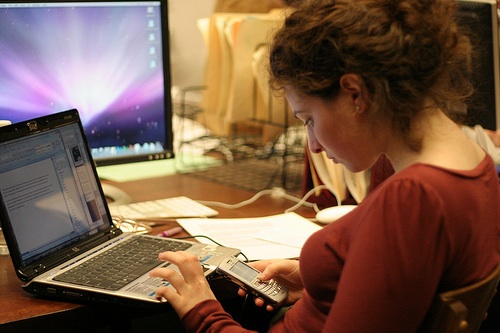What I Learned: A Spring Semester of Student Blogs
Yesterday was the last class of my first semester teaching Social Media: Objectives, Strategies, Tactics at NYU. I’ve heard from many that the first time teaching any new class is always the most challenging, and while time will tell if that’ll be true for me, it was an interesting and rewarding challenge along the way.
In addition to examining the theoretical and practical application of social media, students were required to maintain individual blogs, comment on other blogs, use Twitter, and keep abreast of ongoing developments in social media, PR and communications. (Our class wiki, Google Reader and other tools were optional.)
There were 29 students in the class, and the students had about as diverse a range of experience with social media as you could get going into the course. The NYU program is a Master’s in PR and Corporate Communications, and because it’s a professional master’s program in New York City, students have a particularly diverse range of backgrounds in general. Some work full-time and go to school part-time, while some are full-time students (particularly many of our international students); some students have worked in professional communication jobs for many years, some are fairly fresh out of college, and some are relatively older students working on career transitions; and then some students had experience using social media not just for personal use but also professionally, while some were opening Twitter accounts for the first time at the start of the semester.
Into that mix came the individual blogs. The students could write about any topic they wished, as long as they made some connection between the topic and social media, PR or communication. (Some took more advantage of this freedom than others, but I think it did allow those who wanted the option the ability to blog about something they were really passionate about.) Some weeks were open topic weeks, and some weeks had a general assigned theme, like nonprofits and social media.
The blogs were a significant part of their ongoing semester assignments, and this past week I asked that they use their last post to evaluate their semester of blogging. These emerged as the common themes from their reviews:
- Blogging well takes time. I think many thought initially that a blog post could be dashed out in 15 minutes before the start of class, but they quickly realized how much time was needed to write thoughtful, well-written and clearly organized posts.
- Blogging’s harder than it looks. Again, with many coming at the assignment from a more personal perspective, many students went into it thinking that you could just jot down anything you’d like that came to mind. In practice, many talked about learning to capture ideas along the way, as well as how they learned to overcome writer’s block when they didn’t know what they wanted to say.
- Blogging publicly can be scary. Many commented on their initial reluctance to post their thoughts for all the world to see, but almost all said that in the end the assignment helped them become more confident in writing online.
And what did I learn from their blogs? These may not be earth-shattering conclusions to some who’ve been assigning blogs to students for years, but it was interesting for me to see this in person:
- Doing it trumped reading about it. I don’t think they would have come away with the same experience by reading about or being told how to blog. Getting their hands dirty made the learning much more sticky.
- What they learned isn’t blogging specific. In the end, the blogs were a means to an end. To become more comfortable with a slightly different style of writing, to become more confident sharing their work and opinions online, to habituate to the social norms of different online environments and groups, and to begin to adapt to more real-time feedback and communication loops.
- Their experience will help them be better professional communicators. I truly believe this. Many of the class don’t plan to continue their blogs, and I told them I’m agnostic about whether they do or not. On a personal level, not everyone’s going to want to blog. (Social technographics, and many other things, tell us this.) But what I wanted them to get out of it, and I think they did, is a better professional sense of the dynamics at play and the questions to ask. Not just about blogs, but about social media in general. So when their boss or client says, “We should have a blog (or a Twitter account, or…),” they can say, “Why? What are we trying to accomplish? How will we manage the time needed? Who’s accountable?,” etc. And they can have a sense of why those kinds of questions are important in the first place, and why the answers matter too.
So that’s my review of their semester of blogging. What do you think?
